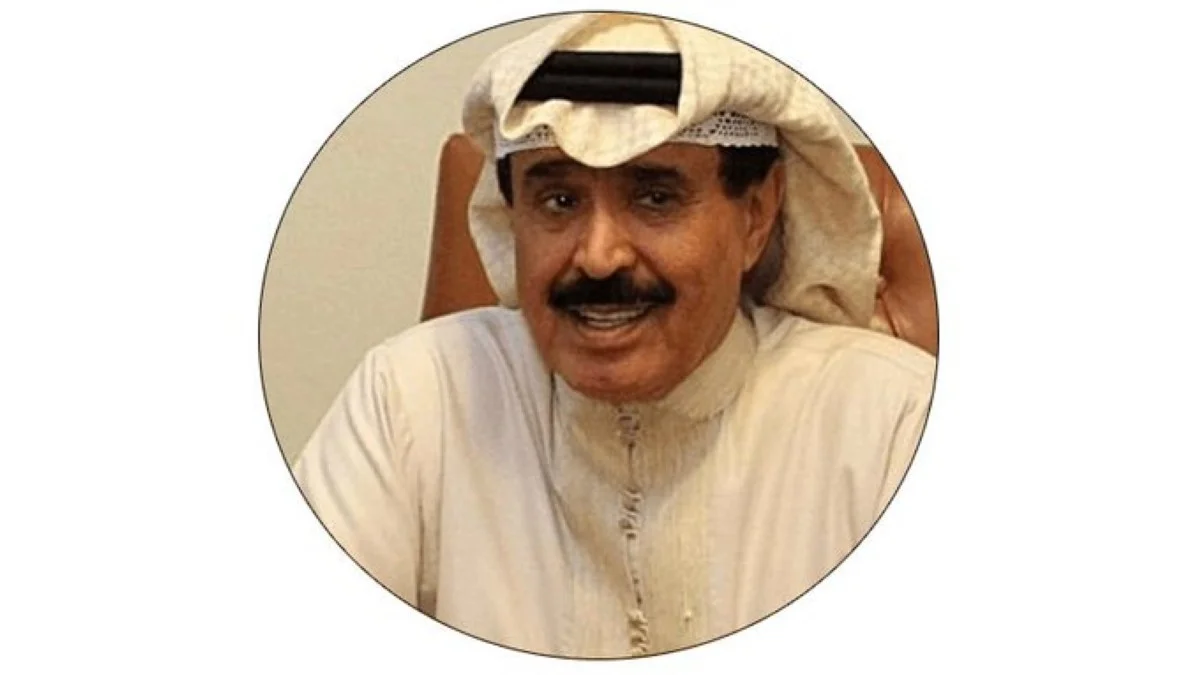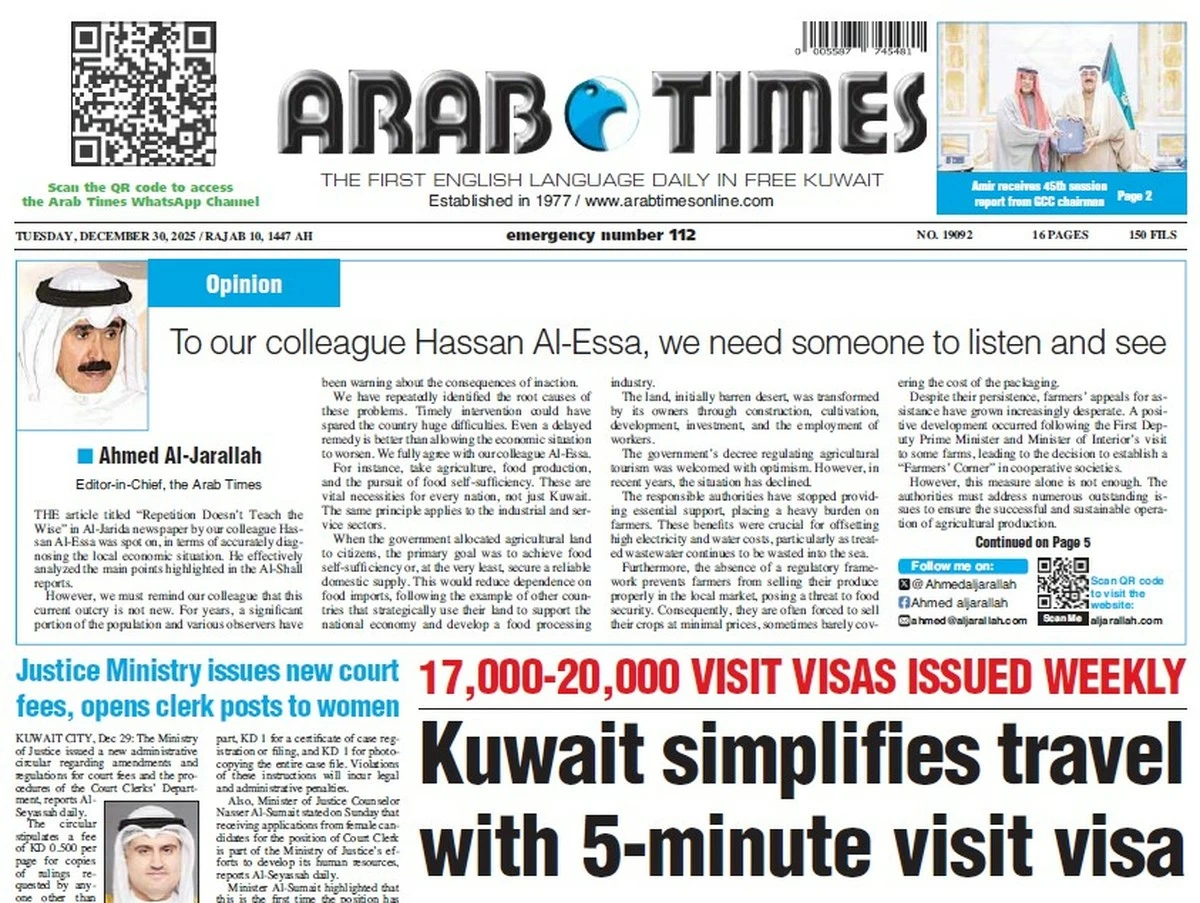02/09/2024
02/09/2024
THE renaissance of any country requires updating, rather upgrading the outdated laws that no longer reflect contemporary needs. With various events, changes are necessary to keep pace with the current realities and future demands.
For example, Kuwait used to provide services to its people free of charge when its population was relatively small. However, with the expansion of construction and population growth, it did not take into account the requirements for that, due to which it is now necessary to take into consideration the impacts of these services, especially in terms of the deficit in the state’s general budget.
In line with the efforts led by His Highness Sheikh Mishal Al-Ahmad for the modernization of the state, he launched a bitter remedy for dealing with the issues arising from certain constitutional articles. These articles had led to abuse of power by some parliamentarians, who acted as a shadow government and allowed the National Assembly to encroach upon the powers of other authorities.
This was why His Highness the Amir of the moment ordered a comprehensive modernization workshop to address these problems, which was why there are many laws and regulations that necessitated amendments.
Among the most pressing amendments is the need to clearly define who should receive support or subsidies. This reform aims to avoid the misleading rhetoric of “not touching the citizen’s pocket,” which can obscure the true nature of the necessary changes.
This summer, we witnessed an electricity crisis that exposed the Council of Ministers’ inability to provide electricity for everyone, given that the demand far exceeds the state’s capacity.
Even though the situation is difficult, it is important to recognize that Kuwait is one of the most water-scarce countries and invests huge sums for electricity generation.
However, as the saying goes, “Your uncle’s money doesn’t concern you”, many citizens leave their electricity meters running in their villas and homes while traveling during the summer. This is because of the mentality that “What is free doesn’t cause harm, so take as much as you can.” This mindset reflects a problematic attitude toward resource use.
Similarly, the issue of food aid reveals a similar disconnect. Although most Kuwaitis do not need it, there are those who refuse to forgo it, clinging to the notion of “not touching the citizen’s pocket”, which is on everyone’s tongue.
Indeed, some ministers promote this slogan out of fear of telling the truth, while the costs continue to rise annually, reaching approximately KD 7.5 billion.
We have previously stated and reiterate now that low-income Kuwaitis are the ones who truly deserve a well-designed support program, as they often struggle to make ends meet and usually resort to borrowing.
Therefore, lifting subsidies will not adversely affect the wealthy or well-off citizens. In fact, those who contribute to resource wastage and increased deficits are often the same individuals unwilling to relinquish these subsidies. This is more harmful than high treason.
Many who demand “not to touch the citizen’s pocket” have commercial or other vested interests and are actively inciting parliamentarians to maintain the status quo.
Nonetheless, the government must adopt a pragmatic approach. Over the past year, overseas medical trips cost about KD 1.5 billion (approximately five billion dollars), which were funded by the Ministry of Defense, the Ministry of Interior, and the Ministry of Health.
This expense is largely the result of parliamentary “wasta” and other vested interests that have exploited public funds to the point of draining them.
To address these issues, it is essential to update the laws. If the Amir of the moment made bold decisions, then it is incumbent upon the ministers to follow his lead.
We need to amend all relevant legislation – from residency and visit permits to culture and entertainment – to ensure Kuwait keeps pace with current realities and advances steadily toward the future.



